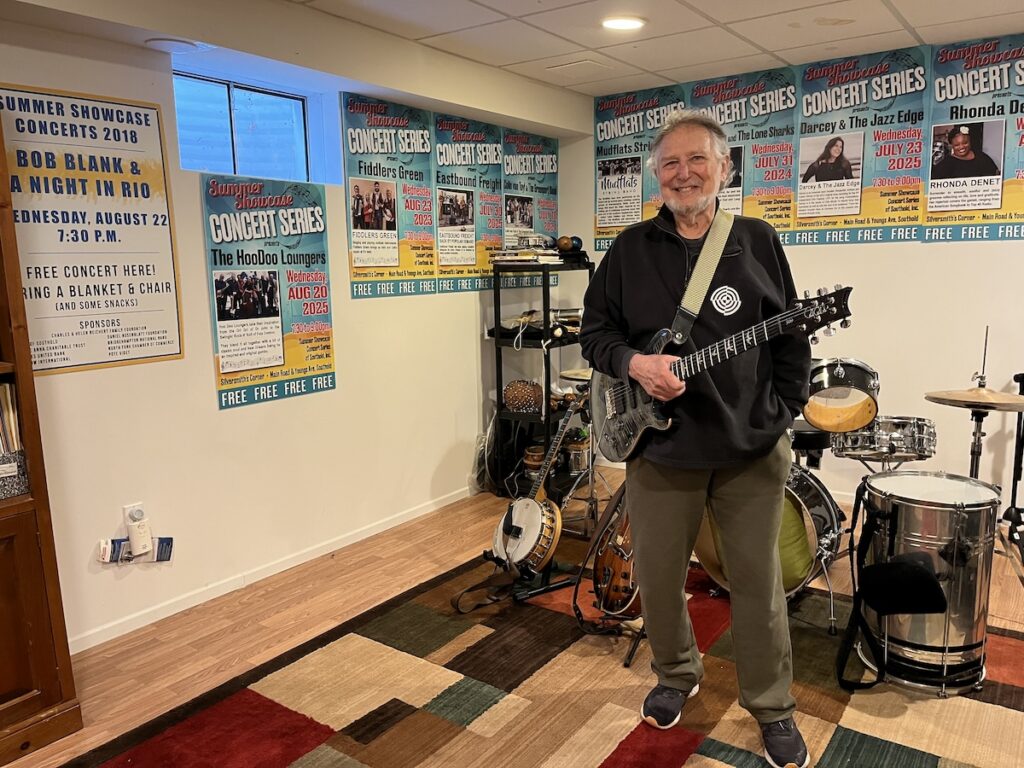Greenport Village to use AI to combat Airbnb rentals

Airbnb utilizes artificial intelligence to connect vacationers with homes for rent. The Village of Greenport will soon use AI to clamp down on Airbnb listings within its one-square-mile jurisdiction.
The village is finalizing a contract with a software firm to crack down on short-term rentals, which village code defines as a rentals for a period of fewer than 14 days. Such arrangements are prohibited in the village, except for the rental of one dwelling of a two-family home where the other dwelling is occupied full-time.
The software, courtesy of GovOS, an Austin, Texas-based company that provides online services to local governments, will manage various aspects related to rentals in the village. Prospective renters will fill out permit applications through the software, which will scour the web to spot prohibited rentals.
The popularity of short-term rentals has skyrocketed nationwide in recent years thanks to the popularity of sites like Airbnb, which allows homeowners to rent their homes or rooms for short-term vacationers. The site uses AI to assist both renters and owners.
“On the guest side, for example, [use of AI] includes matching people with the most relevant listings, experiences, and services around the world,” a 2018 Airbnb web post reads. “For hosts, we’ve developed new ways to improve smart pricing to help to predict the probability that a listing will be booked at a given price at a given calendar date.”
Village Treasurer Stephen Gaffga researched various software firms that use similar technologies to address the village’s code enforcement challenges.
“We went through an exhaustive process to review all the top companies that do this,” village Mayor Kevin Stuessi said. “We narrowed it down to the top three, and then did a very close review of the top three companies, each of which do use AI to some degree for trying to find rentals.”
The village chose GovOS, which has been helping municipalities manage short-term rentals since 2018, according to chief strategy officer Erin Neer.
“We review about 30 different platforms, everything from Airbnb, to Vrbo, to FlipKey, there’s quite a few, and then our system compiles [listings] through different automated jobs and algorithms,” she said. “We do have a human touch aspect of that, after all the automation, and that’s really important, because we never want to have a community send a letter to the wrong owner.”
AirDNA, a website which analyzes rental listings on Airbnb and Vrbo, currently reports more than 250 homes listed on either site within the Village of Greenport and Greenport West.
The village trustee’s unanimous vote last Thursday to use GovOS’ software arrives on the heels of discussions throughout Southold Town about the town’s new Community Housing Plan, which will use funds generated through the Peconic Bay Region Community Housing Act’s 0.5% real estate transfer tax. The town held one such discussion at Floyd Memorial Library in Greenport, which was attended by various elected officials, including Mr. Stuessi.
Some town and village elected officials view bolstering short-term rental code enforcement efforts as a means to boost housing stock. Village trustee Julia Robins described the proliferation of prohibited short-term rentals as “the Wild West” and said she hopes cracking down on short-term rentals will persuade property owners to rent their homes long-term, thus boosting the available housing stock within the village.
“As far as I’m concerned, I don’t think we should have any short-term rentals in the village,” she said. “I think they’ve destroyed the community, to be honest with you. I’m a big affordable housing advocate, and short-term rentals have literally decimated the [long-term] rental stock for normal working people that live here in the village.”
Mr. Stuessi said code enforcement is not enough to tackle the shortage of housing, affordable or otherwise, and that generating solutions will “require a lot of heavy lifting and hard work by both the village and the town.”
Both Southold Town and Greenport Village are currently taking similar code enforcement measures, a small piece in the housing solution puzzle. Southold Town Supervisor Scott Russell said the town is proposing increased penalties for those who violate its short-term rental code. Mr. Stuessi hopes to propose a similar measure at a public hearing later this summer.
“We have existing fines that are in place, which can include up to revocation of a permit as needed,” Mr. Stuessi said. “I believe the fines are too low currently, and we need to increase them significantly in order to really create a disincentive for people to break the law. So together with higher fines and proper software in place, we’ll be able to manage [short-term rentals] a lot better.”









